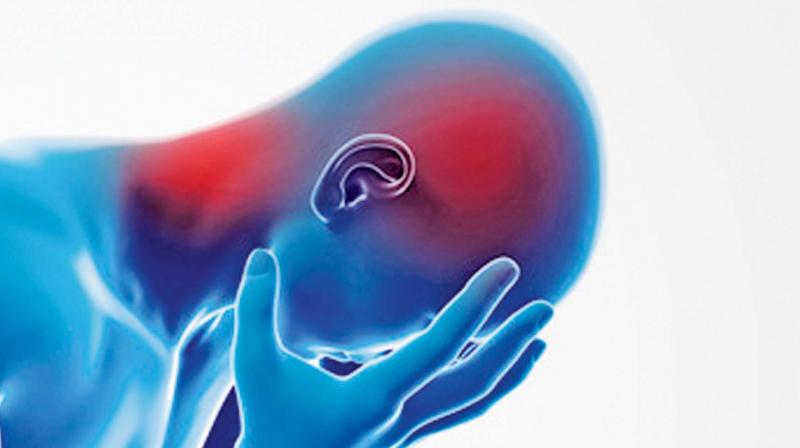Migraine affects personal, professional life

Chennai: Approximately one in seven people across the globe are people suffering from a migraine. In India alone, this figure is higher than 140 million people. Despite such high prevalence, migraine continues to be an under-diagnosed and under-treated disease in India, says Dr Major T. Vijay, neurologist, Vijay’s Neuro Clinic.
A migraine is characterised by recurrent attacks of moderate to a severe headache that is throbbing or pulsating and often strikes one side of the head, though both sides may ache. “It is a complex neurological disorder that may be a result of a dysfunction of an area of the brain stem that is involved in controlling pain perception and sensory activity. It is ranked globally as the seventh most disabling disease among all diseases and the leading cause of disability among all neurological disorders,” Dr Vijay says.
Migraine attacks can interfere familial, social and recreational activities, doctors say, adding that there are many cases where recurrent headaches and disability has led to self-harm because of the comorbid depression that is seen with a migraine. “Most of the times, when I assess my patients suffering from a migraine, I also evaluate how their lives have been affected with the condition. Most of them complain about how the disease has impacted both personal and professional aspects of their lives. The personal aspects include — missing family function and parties, celebrating festivals, spending time with family during weekend also adverse impact on relationships with their partners. On the professional front, poor quality of work leads to less productivity at the workplace, taking a higher number of sick leaves due to a migraine, colleagues not understanding the severity of pain.” says Dr Major T Vijay.
Doctors suggest that confiding in a colleague, getting at least seven hours of sleep, taking regular breaks and prioritising work can help on the work front.
Warning people that a migraine may lead to depression and other neurological conditions if not detected on time, Dr Vijay says that taking appropriate precautions would help one lead a symptom-free life.

